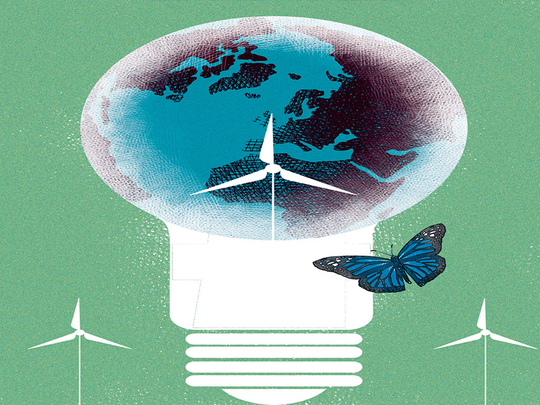
‘The world is in desperate need of innovative solutions to create a new, sustainable energy future.’ We couldn’t agree more. Kopernik is proud to support this declaration from the Zayed Future Energy Prize, as the 2016 winner in the non-profit category. We believe that the development sector must experiment with new innovations and ideas that have the potential for widespread impact, in place of repeating inefficient practices. But more than this, these ideas must take clean energy into consideration for even greater success and sustainability.
A year on, from the advent of the United Nation’s Sustainable Development Goals, awareness of the necessity of finding sustainable solutions for developing nations is now widely understood at a global level. Some incredible work has progressed in this sphere across the Asia-Pacific, with many regarding this region as a worldwide leader in bringing clean-energy solutions to the forefront in emerging and developing markets. Additionally, increasing collaboration between development, government and private sectors is helping to shift attitudes for much-needed policy reform surrounding this issue in many countries.
Since winning the 2016 Zayed Future Energy Prize, Kopernik’s ability to respond to the sustainability call has dramatically elevated. We have continued to refine the delivery of our clean energy technology distribution programmes, advocate for the role of women in the clean energy supply chain throughout Asia and grow vital partnerships with both private and public sector actors to find new and efficient solutions for common issues in last-mile communities. We believe that awards, such as this, play an important role in further supporting a global environment where innovative and sustainable initiatives for the development sector can prosper.
The focus of the prize highlights an important issue. Globally, there is still a lack of access to energy for a significant number of people, let alone clean energy. Despite Indonesia’s steady economic growth leading to its current position as the strongest economy in Southeast Asia, the reported number of people living without electricity at all range from 10 to 60 million. While there are many more that still struggle with an inconsistent electricity supply, increasing the reliance on less efficient, and often harmful, energy sources. Add to this the fact that almost 25 million people continue to use unhealthy and fuel-hungry three-stone fires for cooking and the situation becomes significantly worst.
The growing population and continued global pressure to reduce carbon dioxide emissions demand that clean and sustainable energy solutions be developed and implemented quickly.
While governments and other actors focus on the necessary policy changes, grass-roots initiatives are an important part of the solution, resolving both immediate issues and encouraging community buy-in to more sustainable practices. We have seen considerable success combatting the clean-energy access problem in Indonesia through our Wonder Women Initiative — a programme that empowers women to become micro-social entrepreneurs by selling clean energy technologies in their communities.
Growing recognition
Through this programme, we have witnessed a shift in attitude and behaviour at the community level. Sustainable solutions are increasingly accepted and viewed as viable options for families living in remote rural communities often unreached by basic services. In many villages still lacking electrification throughout Indonesia, local officials are innovating and seeking alternative energy sources while they wait for public electricity to become available. Excitingly, there is growing recognition of the value of solar energy solutions in place of expensive and inefficient options like diesel generators.
In Balurebong, East Flores, the local government recently allocated a portion of their Indonesian Government-supported village fund to purchase solar lights for all the households in the village. “Electricity has been a long, ongoing challenge for us, so everyone uses kerosene lamps. It is not beneficial for them, for their health or their finances,” said Marcelinus Taring, former Village Head of Balurebong. Such stories are encouraging and highlight the closing gap between remote communities and solutions that, up until recently, were not financially or geographically accessible to them.
With the increased availability and affordability of clean-energy solutions like solar power, a global stage set to foster change in this sphere, and an exponential demand for working solutions to reduce energy poverty, we are at a pivotal point. The conditions are prime for greater innovation and cross-sectoral collaboration to push the application of clean energy technologies further. The development sector must firmly embed clean energy into our work to close the energy gap and build a more sustainable future for all.
— Anna Northey is communications adviser of Kopernik, the winner of Zayed Future Energy Prize for Non-Profit Organisations in 2016











